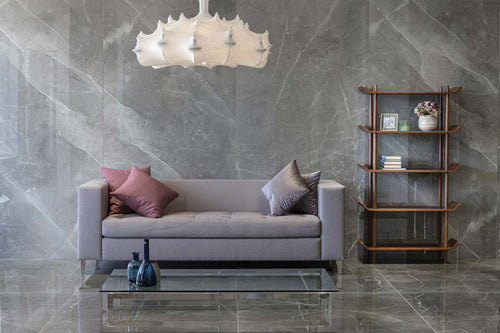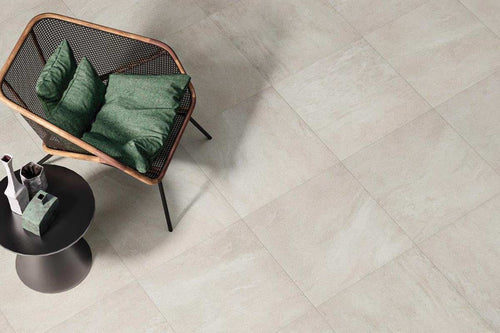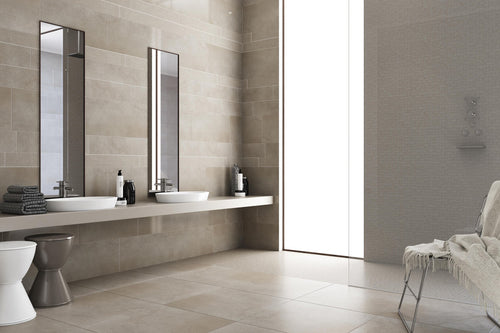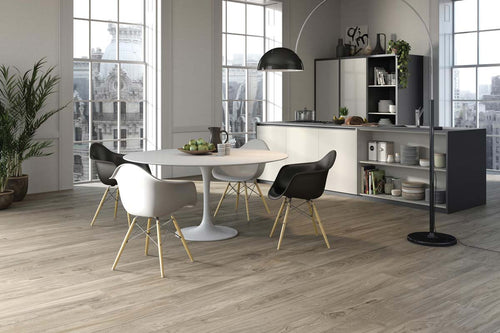What Makes Porcelain Tiles Different?
Porcelain tiles are fired at higher temperatures than ceramic tiles, making them denser, harder, and more waterproof. This means they’re less likely to absorb moisture, making them a durable choice for kitchens, bathrooms, hallways, and utility rooms.
Their low porosity also makes them easier to keep clean and more resistant to staining. Unlike natural stone, porcelain tiles don’t require sealing, offering the perfect balance of luxury appearance and everyday practicality. To know more about tiles read our blog, Everything you need to know about Porcelain tiles
How to Clean Porcelain Tiles
Porcelain tiles are incredibly low-maintenance. For everyday cleaning, a soft brush or vacuum followed by a mop with warm water and a gentle floor cleaner will do the trick. Thanks to their non-porous surface, they resist spills and grime better than many other surfaces, making them ideal for homes with kids, pets, or busy lifestyles.
Avoid harsh chemical cleaners or anything too abrasive where possible, and a simple pH-neutral cleaner is all you need to keep your tiles looking fresh.
Read our guide on cleaning porcelain tiles for simple maintenance tips.
How to Cut Porcelain Tiles
Porcelain tiles are tougher than ceramic, which makes them more durable, but also a little more demanding when it comes to cutting. For clean, precise cuts, it’s best to use a wet tile saw or a diamond blade cutter. These tools help reduce chipping and ensure a professional finish, especially for floor tiles or larger format options.
If you’re planning a DIY installation, it’s worth practising on a spare tile or asking your local tool hire shop for advice on the right cutter.




























